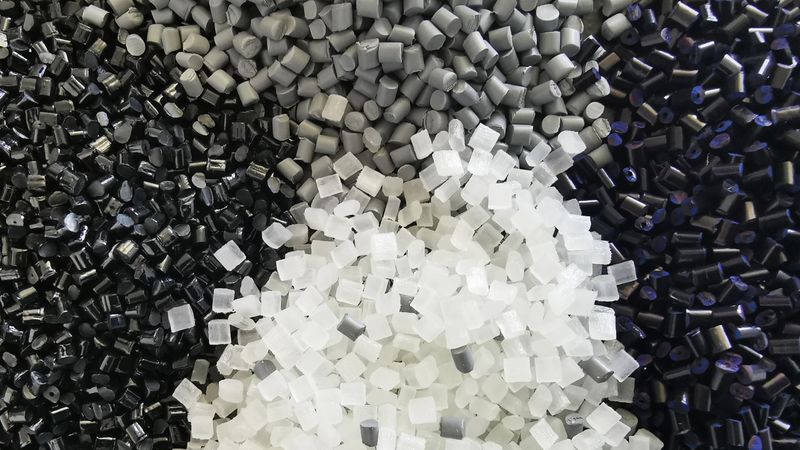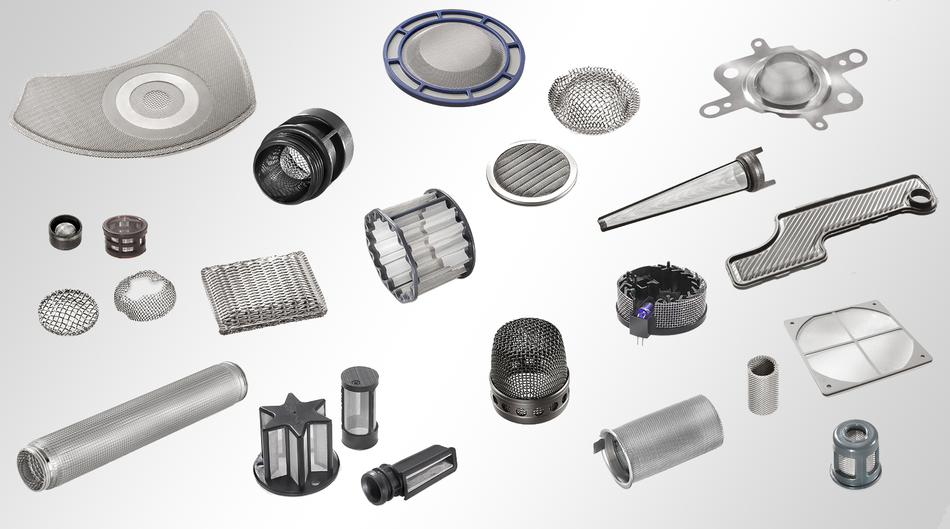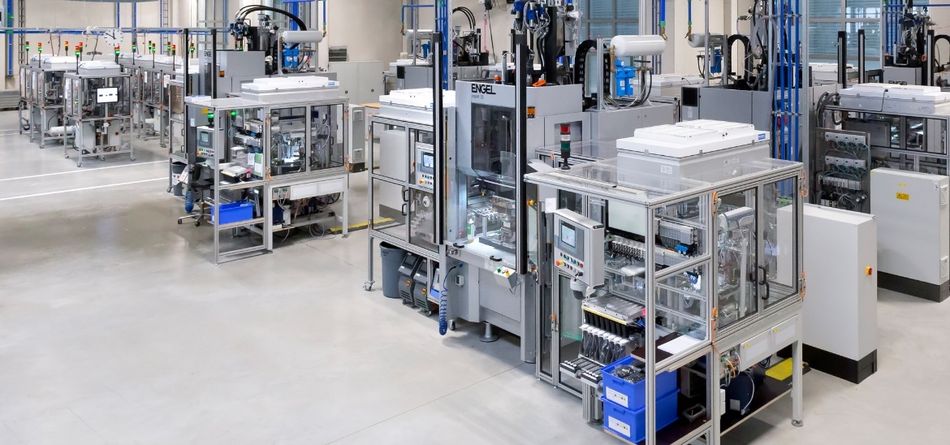Perfection in detail - Plastics engineering in the Wire Weaving Division
In plastic injection moulding, edgings and complete fabricated parts are made from metal wire mesh.

© Haver & Boecker
Metal wire cloth is at the heart of countless filtrations, homogenisations and other applications with solid, liquid and gaseous media that benefit from the exact uniform structure and stability of wire mesh. Haver & Boecker excels in perfection down to the last detail. This applies not only to the filter medium itself, which covers an extremely wide spectrum from the finest structures in the micrometre range to coarse structures. It also applies to the filters and fabricated parts into which the mesh is further processed, including plastic edging.
When touring through the many production halls of Haver & Boecker’s Wire Weaving Division in Oelde, Germany, one thing becomes very clear: it is the combination of tradition and experience on the one hand, and innovative strength and the cutting-edge technology on the other that makes it possible to develop individual product solutions for the filtration of solid, liquid and gaseous media. Plastic injection moulding has become an important component in recent years.
“Plastics engineering in conjunction with wire mesh is a discipline in its own right, which also takes us experts to a new level,” says the industrial supervisor who specialises in plastics engineering.
Whether simple cut-to-size wire mesh or complex components - made-to-measure metal filters and fabricated parts made of metal mesh are used in a wide variety of industries and areas of application. This is because virtually all manufacturing companies have to deal with the filtration of particles or the retention of foreign substances - be it in the development of individual components such as transmission oil filters for the automotive industry or in the ongoing treatment of waste water or process water. Wire mesh is an ideal filter medium thanks to its exact geometric structure and the precisely definable pore size and the material and flow characteristics.
Custom-made hybrid components
Overmoulding components with plastic is also nothing new. Haver & Boecker‘s Wire Weaving Division introduced plastic injection moulding as early as 20 years ago. The requirements for functionality and handling of metal wire mesh filters increased along with the complexity of the product shapes and production equipment, and even experts in this field confirm that the combination with wire mesh is a whole field of plastics engineering of its own.
Many decision-makers, however, are impressed in particular by the production of precision, lightweight fabricated parts coupled with the economical series production as the result of short cycle times.
Always bearing speed and resource conservation in mind, Haver & Boecker produces hybrid components on the basis of the state-of-the-art systems engineering integrated into the production line by the employees of its own toolmaking department. They work in wire weaving in many places and draw on a wide range of expertise ranging from adjusting screws on the looms to optimising coarse and fine meshes, to the finishing stations up to the complex production line.
The successful series production of hybrid filters and the adoption of proven developments such as HAVER’s Vision System for visual inspection of all components speak for themselves. The development teams from our own toolmaking, research & development, engineering and plastics engineering departments provide advice on new tool and system concepts including optimisation of the plastic itself. PEEK plastic, for example, was thus successfully modified by adding a silicone-based additive: HAVER AdPEEK® makes energy-efficient system utilisation possible by lowering the required melting temperature, amongst other things.
All from a single source - All for your safety
© Haver & Boecker
3D printing for prototypes with plastic edging
Every development process is characterised by a regular exchange of information and coordination. Specific, three-dimensional and tangible approval samples are enormously helpful as a basis for discussion as they can be used to check handling, test the fineness of the meshes and develop packaging options. Haver & Boecker uses 3D printing here on order to act quickly, flexibly and individually and thereby shorten the product development process.
Flexibility is a valuable asset nowadays
The various types of mesh, of which more than 3,600 are in stock alone on a total storage area of more than 6,000 square metres at the company’s headquarters in Oelde, cover a wide spectrum ranging from the finest of micrometre structures to coarse structures. Although such a high inventory level contradicts the general trend, it increasingly pays off as regards to dependable deliverability and adherence to delivery dates.
Thanks to this interaction of tradition and innovation and the courage to put its own experience ahead of a trend, this family-owned business has become the world's leading manufacturer of wire mesh since the company was founded more than 130 years ago.
The individually developed production lines meet the highest standards of quality and reliability. © Haver & Boecker
Learn more on our website.

